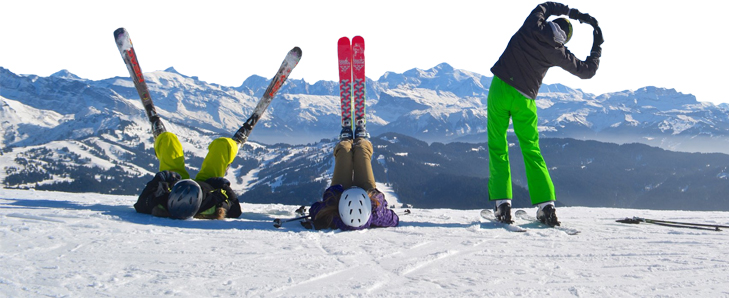Busting Myths: The Truth About Ski Touring
POSTED:
POSTED:
_w=672_h=445_pjpg.jpg?v=202403110927)
In the heart of the French Alps lies the legendary ski resort of Val d'Isere, a paradise for winter lovers seeking adventures off the beaten track. This region is widely regarded as a snow-covered paradise for ski touring. Yet, many skiers don't have the skills or understanding to reach it.
So, what is ski touring? If you’re unfamiliar, ski touring (also known as backcountry skiing in the USA) involves hiking up the mountain using specialist equipment. Unlike traditional alpine skiing, it doesn’t involve the use of ski lifts to reach the peaks. This allows you to explore more remote areas off-piste where the powder is untouched, making the downhill ski more exciting.
In this guide, experienced ski instructor and off-piste guide at TDCSki, Terry, debunks some of the most common myths he's encountered over the years surrounding ski touring and off-piste skiing.
_w=870_h=560_pjpg.jpg?v=202403110927)
While ski touring does require a certain level of physical fitness, it's not exclusively reserved for elite athletes. With the proper techniques and pacing, even those with moderate fitness levels can enjoy ski touring.
Plus, the breathtaking scenery, wildlife and sense of accomplishment make every uphill climb well worth the effort. Ski touring is as much about immersing oneself in nature as it is about the physical challenge.
One of the most prevalent myths about ski touring is that it's reserved for expert skiers or mountaineers. In reality, ski touring encompasses a wide range of abilities, from beginners looking to explore gentle slopes to advanced adventurers seeking steep and challenging terrain.
Val d'Isere offers a plethora of routes suited to various skill levels, allowing everyone to experience the thrill of venturing into the backcountry.
_w=427_h=560_pjpg.jpg?v=202403110927)
_w=427_h=560_pjpg.jpg?v=202403110927)
While it's true that ski touring involves certain risks, proper preparation and guidance will significantly mitigate these dangers.
As an experienced guide, safety is always my top priority. Before embarking on any tour, I conduct thorough safety briefings, assess avalanche risks, and ensure that all participants are equipped with the necessary gear. This includes avalanche transceivers, probes, and shovels. With the right precautions and knowledge, ski touring can be a safe adventure.
Contrary to popular belief, you don't need to break the bank to enjoy ski touring. While investing in high-quality equipment is essential for safety and comfort, there are plenty of affordable options available for beginners and seasoned tourers alike.
Many ski shops in Val d'Isere offer rental packages for touring skis, boots, and bindings, allowing you to test the waters before committing to a purchase. Additionally, used gear markets and online forums are excellent resources for finding budget-friendly equipment. Facebook Marketplace in this region is a gold mine.
_w=870_h=560_pjpg.jpg?v=202403110927)
While ski touring undoubtedly offers unparalleled access to pristine wilderness areas, it's not limited to hardcore birdwatchers. Whether you're drawn to the solitude of the mountains, the thrill of skiing fresh tracks, or simply the adventure of exploring with friends, ski touring works for many different people with different goals.
Now that these myths have been dispelled, it's time to take the next step and book a session with a TDC guide. Experience the joy of ski touring firsthand and discover the beauty of the backcountry under the guidance of an expert.What’s the difference between ski touring and ski mountaineering?
Ski touring is sometimes used interchangeably with ski mountaineering, but there is a critical difference. Ski mountaineering, as the name suggests, incorporates more winter mountaineering elements before the ski back down. It involves using ropes, ice axes and other equipment to reach peaks that are especially remote.
Ski touring simply involves skinning up the mountain before skiing back down, so ski mountaineering can be a bit more adventurous and require more technical skills. Some ski tours can involve small sections of mountaineering, which can be a good entry point if you’re looking to try it out without taking on too much at once.
What other equipment will I need?
Some other equipment that backcountry skiers need includes climbing skins, adjustable ski poles and ski trousers. It’s worth looking into hiring or getting this equipment for yourself if you’re planning to give ski touring a try.
Browse our luxury ski chalets where you can enjoy the perfect blend of adventure and comfort in the stunning French Alps and create memories that will last a lifetime. Or, you can talk to one of our Alpine Account Managers to start planning your unforgettable escape. Simply call 0203 892 4060, or send an enquiry via email or webchat.
Please contact Louise, Jess, Maxine, Cam or Millie if you have any questions.
